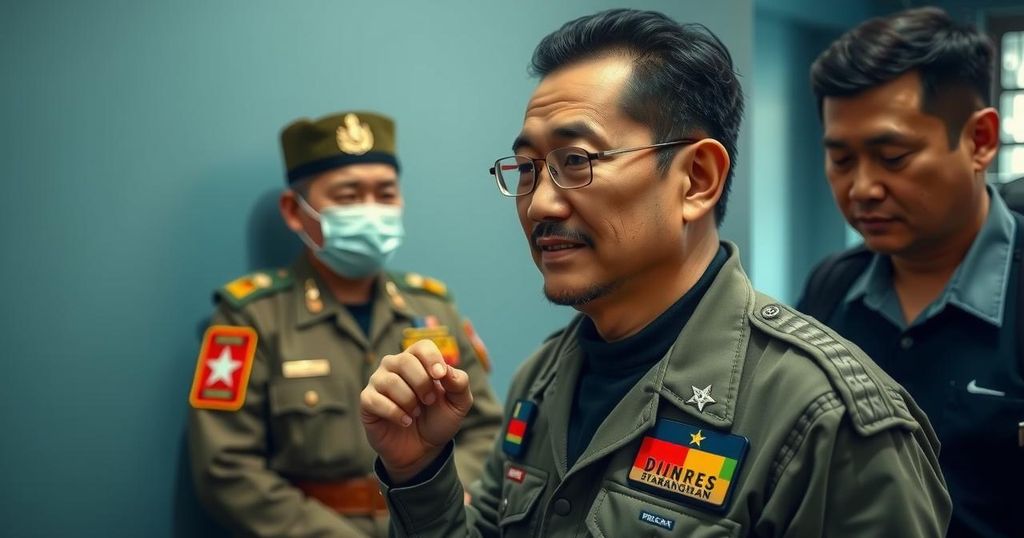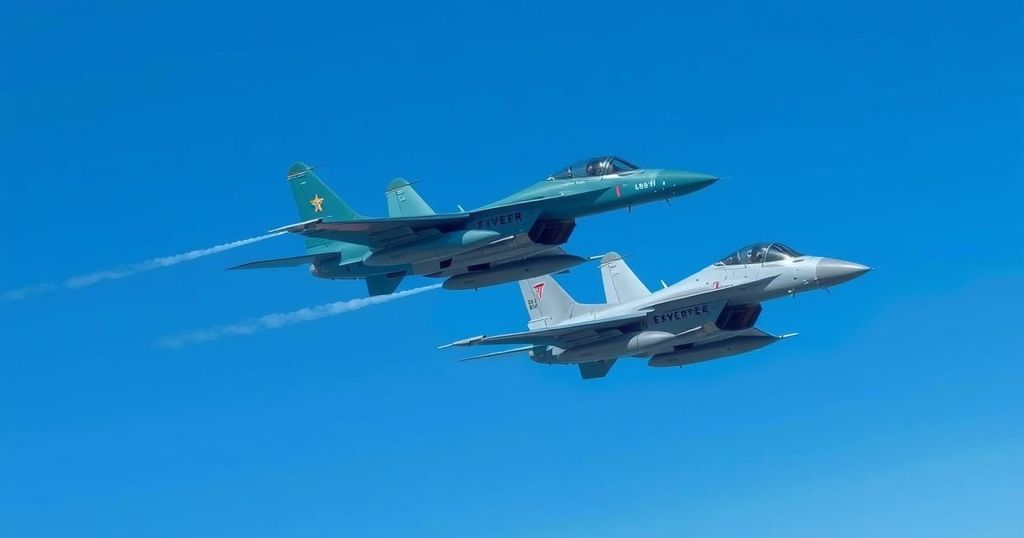Beijing Confirms Myanmar Rebel Leader’s Visit to China for Medical Care
Beijing announced that Peng Daxun, leader of the MNDAA, came to China for medical care, addressing reports of his possible arrest on Chinese orders. This action illustrates China’s complex role in Myanmar as both a supporter of the ruling junta and an entity engaging with ethnic armed groups along the border.
On Tuesday, Beijing confirmed that Peng Daxun, the leader of the Myanmar National Democratic Alliance Army (MNDAA), had traveled to China seeking “medical care.” This statement followed reports from Myanmar indicating that Peng had been detained on orders from Chinese authorities. China has established itself as a significant ally to Myanmar’s ruling junta, yet it is believed to sustain connections with various ethnic minority armed factions operating along the porous border between the two nations, where sporadic conflicts continue to erupt.
The context of this situation revolves around the complex relationship between China and Myanmar. While China supports Myanmar’s military government with arms and political backing, it also engages with ethnic armed groups like the MNDAA that operate along the border. These groups often confront military forces, creating a volatile situation. Beijing’s diplomatic stance reflects a balancing act, maintaining influence over the central government while simultaneously acknowledging the realities of ethnic conflicts within Myanmar’s diverse landscape.
In conclusion, Beijing’s disclosure regarding Peng Daxun’s visit for medical treatment underscores the intricate dynamics at play in Sino-Myanmar relations. While China seeks to support Myanmar’s military government, the existence of ongoing ethnic conflicts challenges a straightforward alliance, revealing the delicate balance China must maintain among various factions within Myanmar. The situation warrants careful observation as it unfolds amidst rising tensions and geopolitical intricacies.
Original Source: myanmar-now.org








Post Comment